Blast for Labor elders over AUKUS
The key architects of the past 40 years of Australian defence policy have criticised claims by Paul Keating, Gareth Evans and Bob Carr that AUKUS will undermine the nation’s sovereignty.
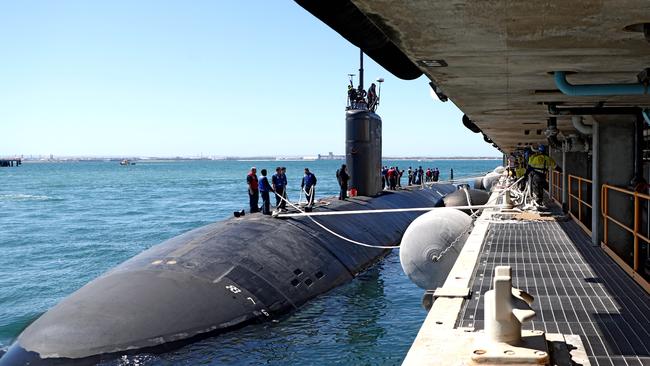
The key architects of the past 40 years of Australian defence policy have criticised claims by Labor veterans Paul Keating, Gareth Evans and Bob Carr that the AUKUS submarine pact will undermine the nation’s sovereignty.
On the third anniversary of AUKUS, Peter Dean, co-author of the recent Defence Strategic Review, has accused the Labor luminaries of asking people to believe in conspiracy theories that the current Labor government is lying to them.
“What they are claiming is an elaborate conspiracy theory,” Professor Dean, a director of Sydney’s United States Studies Centre, told The Weekend Australian.
“They are asking people to ignore the statements of their own government about us having sovereign control of those (submarine) capabilities.
“If that is the case then there are dozens of politicians in the three AUKUS countries and thousands of officials all undertaking a vast conspiracy to delude the public of three continents.

“Paul Keating, Bob Carr and Gareth Evans are asking us to believe that the Prime Minister is lying about this and that there is a conspiracy to delude the Australian people. They have zero evidence for these claims.”
Paul Dibb, who wrote the seminal 1986 Dibb Report, Mike Pezzullo, who wrote the 2009 Defence White Paper, and Kim Beazley, defence minister in the Hawke government, have also rejected claims that AUKUS or the growing presence of US forces in Australia poses a risk to Australia’s ability to make sovereign decisions about its military.
Mr Keating has warned that AUKUS will turn Australia into the “51st state of the United States”, with the former prime minister claiming the purchase of US nuclear submarines would lead to a loss of sovereign control over their use.
“What AUKUS is about in the American mind is turning (Australia into suckers), locking us up for 40 years with American bases all around … not Australian bases,” he said.
Former foreign minister Gareth Evans agrees, saying: “The notion that we will retain any kind of sovereign agency in determining how all these assets are used, should serious tensions erupt, is a joke in bad taste.”
Another former foreign minister, former long-serving NSW premier Bob Carr, has warned: “The $368bn (cost of AUKUS) is the biggest transfer of wealth outside of Australia that has ever happened in our history and, with the retirement of the Collins-class (submarines), we could be left in the 2030s with no sovereign submarine capacity.”
Mr Beazley, a former Labor defence minister and opposition leader, disagrees with his fellow ALP veterans: “We are no more compromised on sovereignty than we were in the 1980s when we had joint facilities like Pine Gap.”
Mr Beazley added that those facilities provided critical military intelligence for both Australia and the US.
He said there were “no negatives” about either AUKUS or the US increasingly using Australia as a base to station its forces against China.
“We will have a very powerful deterrent force here,” he said.
“I mean we are talking about our security, and every bit of it makes us better.”
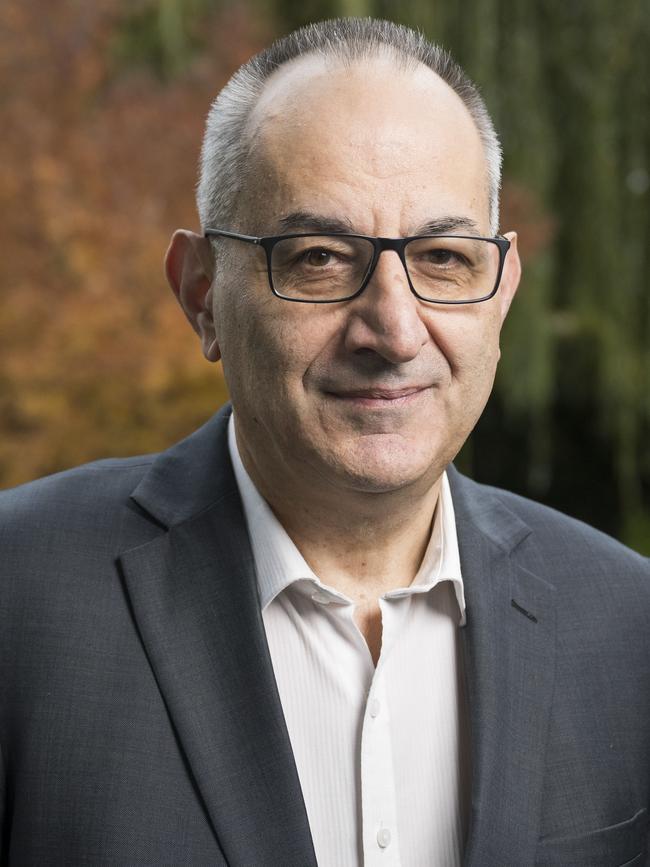
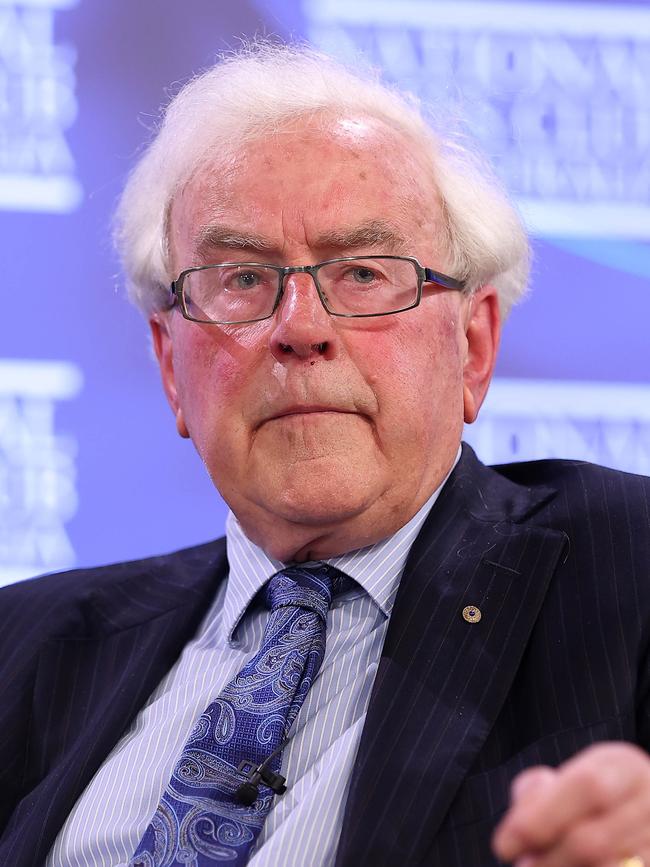
Mr Pezzullo, a former secretary of the Department of Home Affairs and head of Customs, said AUKUS and the growing US military presence in Australia should be seen as a “pooling of sovereignty” in the face of a belligerent China.
“Alliances and commitments to mutual defence assistance require a pooling of sovereignty rather than a compromise of sovereignty,” he said.
“When you talk about compromises of sovereignty you’ve also got to tally up what compromises to sovereignty would occur if we were under the influence of a power whose values, interests and sense of self was very different to us.”
Professor Dibb said the AUKUS pact and the increased presence of US forces in Australia were to be celebrated.
‘This is an essential trend that recognises that with an ambitious China on the prowl, we are much more vulnerable in a way that we were not with the Soviet Union,” he said.



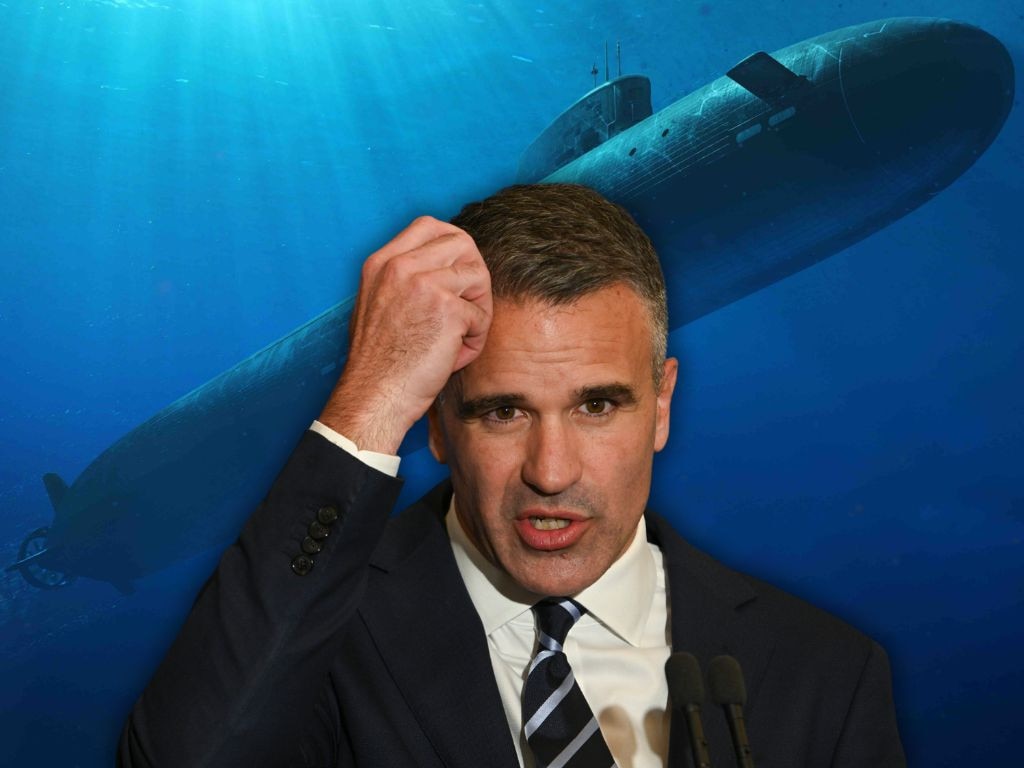
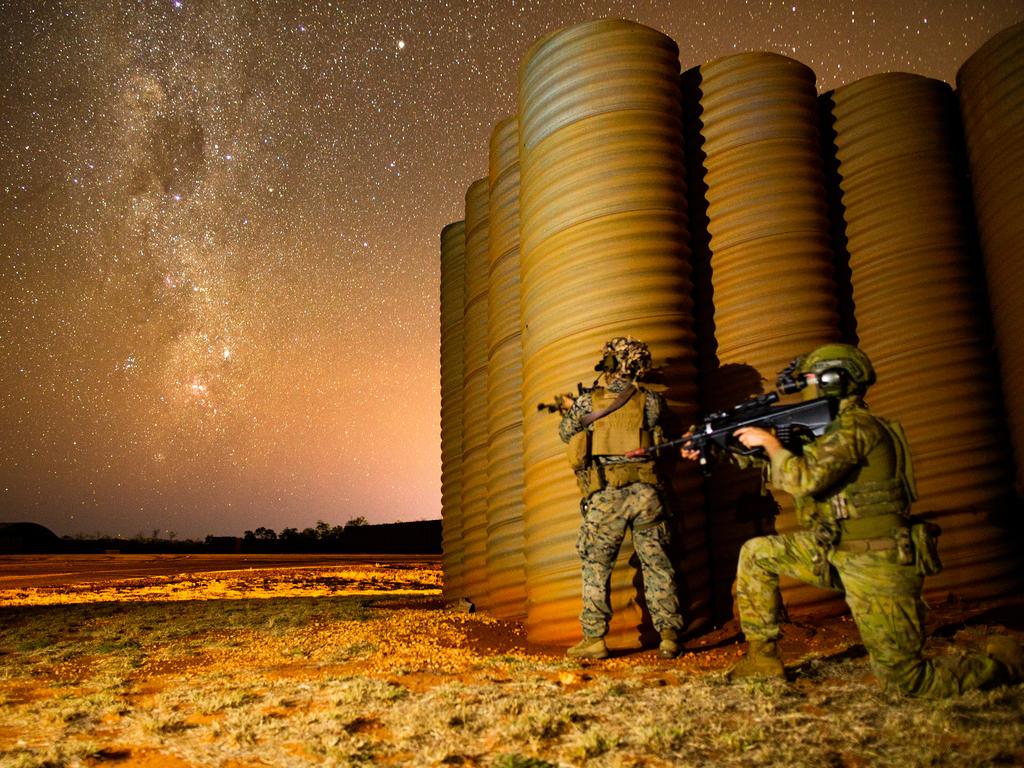


To join the conversation, please log in. Don't have an account? Register
Join the conversation, you are commenting as Logout